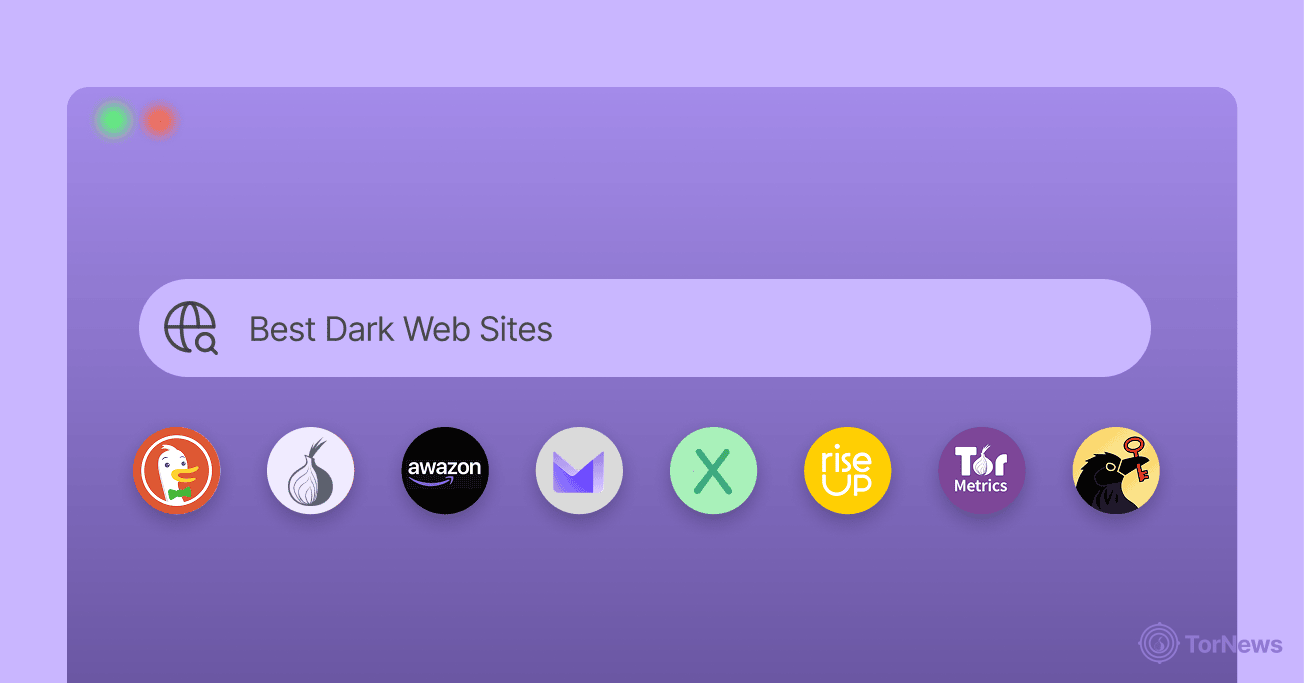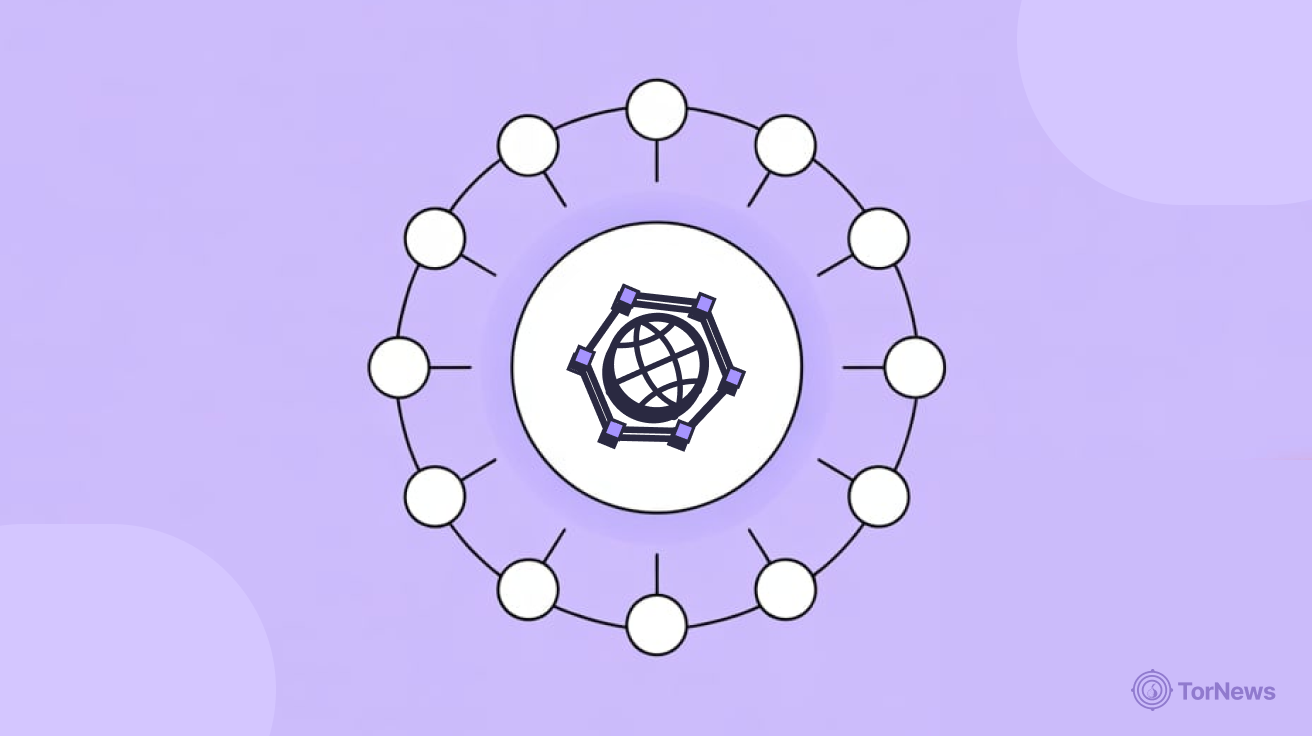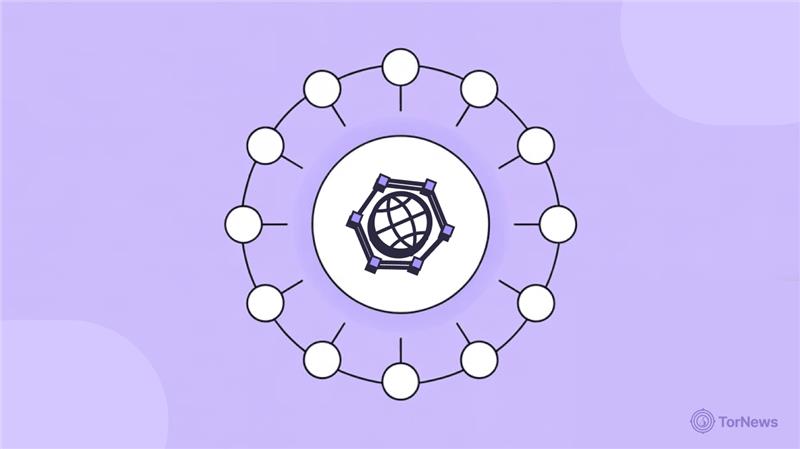The dark web and deep web are home to countless hidden forums where users discuss everything from privacy tools to cybersecurity to hacking, cryptocurrencies, and online anonymity. These platforms aren’t accessible through standard browsers or search engines, making them exclusive spaces for underground discussions. While these spaces also have illicit people buying and selling goods and services, dark web forums are considered valuable online resources for those investigating the dark web.
This article uncovers some of the significance of these forums in our digital landscape today and plunges deeper into this dark and murky ecosystem.
Disclaimer: All content on TorNews.com, including this article, aims to inform and raise cybersecurity awareness. Accessing or using the dark web or its forums for illegal activities violates the law and can lead to serious legal consequences. TorNews does not promote or support any unlawful behavior. Use the information shared here responsibly and only for ethical research, privacy education, or cybersecurity threat analysis. If your research necessitates accessing any high-risk networks, always do so from behind the secure shield of a trusted, no-logs VPN like NordVPN.
Popular Deep Web and Dark Web Forums – Quick List
- XSS (formerly DaMaGeLaB): Veteran hacking forum specializing in ransomware and corporate breaches.
- Tenebris: A deep web, darknet forum that’s quickly becoming a go-to platform for people interesting in discussing about markets, hacks, leaks, and other (mostly illicit) discussions.
- Nulled.to: Notorious for leaked data, hacking tools, and fraud services.
- BreachForums: Successor to RaidForums, focusing on data leaks and cybercrime.
- Dread: A Reddit-like dark web community forum with diverse illicit discussions.
- CryptBB: Elite hackers’ hub with military-grade encryption.
- LeakBase: Rising star for trading stolen databases post-BreachForums shutdown.
- FreeHacks: Russian-based forum for carding, DDoS attacks, and hacking tools.
- Exploit.in: Long-running Russian forum for malware and exploit trading.
- Altenen: Focused on financial fraud and credit card scams.
- BHF (Best Hack Forum): Russian-speaking hub for cybercrime tutorials and tools.
- DarkForums: Emerging BreachForums alternative with premium membership tiers.
- RAMP: Key marketplace for ransomware groups and RaaS (Ransomware-as-a-Service).
Understanding the Deep Web

Think of the deep web as the large basement of the internet. You know it’s there, and it’s really big, but you won’t accidentally wander in.
Contrary to popular belief (i.e., Hollywood), the deep web is not some criminal black market. It’s the older, sensible sibling that is not publicly available. It’s like the basements of the internet, hiding all the private stuff you don’t want the whole world to have. Your email inbox is deep web content. Your online banking site is on the deep web. That folder of family photos you don’t want anyone but your immediate family to see on Google Drive is also deep web content.
Research universities parked their databases in the deep web, and corporations parked their private intranets there as well. Here’s the shocker – the deep web is huge! Its content is that it’s somewhere around 400 – 500 times larger than the surface web (the normal internet we all use).
You could think of that as a small fishing boat (the surface web) compared to the ocean (the deep web). Most of the content is legitimate, just protected by a password, permission, and paywall. The deep web is absolutely essential to everyday life now.
For example, when logging into your online bank account, you use deep web content intentionally created (by your bank) to keep the content from being publicly available. The same applies to your private social media accounts, subscription sites, or intranets. It is privacy by design, and not for illicit purposes.
This distinction becomes really important when we talk about forums of 2026 and other unknown communities. Many people conflate the legitimate privacy of the deep web with the less-than-savory side of its rebellious sibling – the dark web.
Diving Deep into the Dark Web
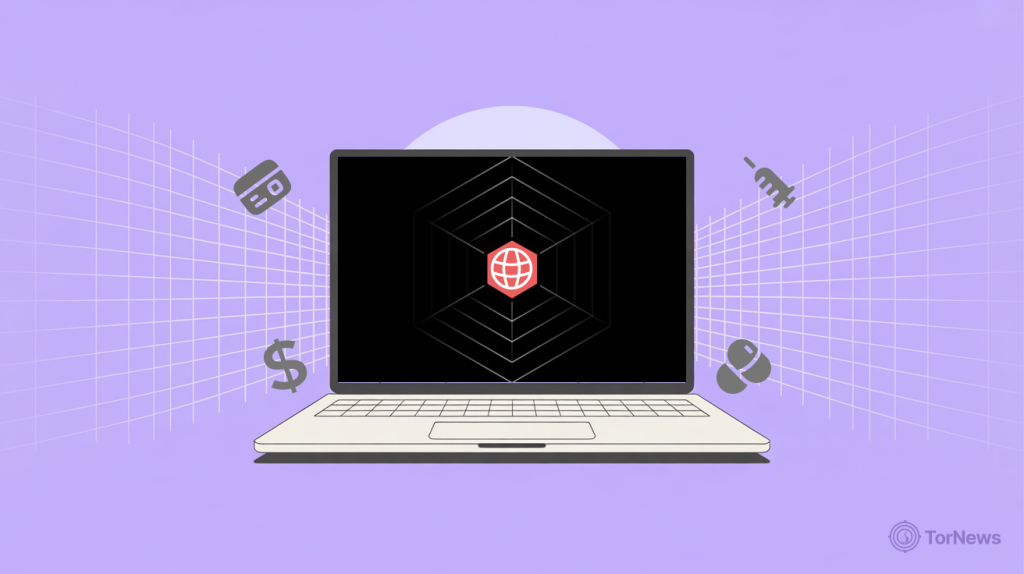
The dark web is the internet’s “secret” bunker hiding behind a bookshelf in its basement, with the deep web being the basement. The dark web is intentionally built for utmost anonymity and secrecy, and unlike the deep web, you can’t find it by accident.
You need certain tools to surf dark web sites; think of those tools as digital skeleton keys, the most popular one being Tor, or “The Onion Router.” Yes, it is called that because there are layers to it, just like that thing in your kitchen.
This dark web browser isn’t just masking what you’re doing; it’s taking your internet address and bouncing it around the planet like a digital pinball machine, making it exceedingly hard to figure out where you are surfing back to you.
Just like deep web addresses look strange, so do dark web addresses because they don’t have normal addresses like “facebook.com.”
Instead, these websites use strange and long .onion addresses that seem like someone smashed the keyboard—something like “facebookwkhpilnemxj7asaniu7vnjjbiltxjqhye3mhbshg7kx5tfyd.onion.” These addresses are unrecognizable by standard search engines, and that is why you can’t just Google your way into the dark web. That clears a lot for you if you wondered how to find dark web forums, right?
Now, here’s where things get interesting. The dark web is not purely evil. Journalists utilize the dark web to connect to sources under authoritarian regimes. Activists organize protests in environments that curtail internet freedom. Whistleblowers share data on misconduct perpetrated by corporations.
But—and it’s worth emphasizing—anonymity that protects the legitimate user and activity, also protects those with less than honorable intentions. That means that dark web forums today hold an unusual duality of the legitimate websites and their users, amidst illegal marketplaces and criminal social activity.
This results in an environment that can still seem like a neighborhood filled with legitimate civilians and the organized crime family living next door, both use the same means, with very different purposes.
Is It Safe to Visit Dark Web Forums?
The dark web can expose you to serious cybersecurity and legal risks, so if you must browse the dark web, always approach it cautiously. If you must access dark web forums for legitimate research or threat analysis, follow these essential steps below to access them safely:
- Use the Tor Browser to hide your IP address and securely reach .onion sites (you cannot access onion sites, let it be forums or others, without a specialized browser like Tor anyway).
- Connect through a trusted VPN (we recommend NordVPN, which is currently on over 70% off) to add an extra layer of privacy.
- Stick to verified threat intelligence sources instead of random or untrusted forum resources.
- Avoid downloads and direct interactions with unknown users or suspicious content.
- Know your legal boundaries — research within the laws of your country and avoid any illegal activity.
Access responsibly, and always, always, prioritize your safety and compliance when exploring hidden networks.
13 Best (Active, Popular) Dark Web Forums Today – Detailed List

Please note that the status of darknet forums changes quickly. Very quickly, because of law enforcement actions, voluntary shutdowns, or domain seizures. A site that was active last week could be offline today. So, you now know all the basics, let’s start exploring dark web forums that people flock to today.
1. XSS (Formerly DaMaGeLaB)
- Onion address: N/A
XSS has existed since 2013 and is often seen as the “Wall Street” of cybercrime—highly organized, business-oriented, and remarkably professional. Originally known as DaMaGeLaB, the forum rebranded to XSS after its administrators were arrested in 2018 and the forum got rebranded, showcasing how even criminal networks can demonstrate effective crisis management.
XSS isn’t for small-time operators; it targets exclusively large corporate targets. There are no 4-hire credit card operations here. These are the organizational members too proud to show their face on sites like BlackBook or RaidForums.
They are coordinating against businesses (ex., unauthorized network intrusion), ransomware services that can shut down industries (ex., how normal business interruptions impact surrounding businesses), and massive data breaches that force data-classified press releases. It also runs another way, similar to a corporate-style agenda.
As an example, new members must validate their criminal status and computer skills before they will even be able to access certain premium sections of the forum. It feels like a country club where, instead of golf and tennis, members discuss network infiltration and data exfiltration. XSS is the professionalization of cybercrime. When high-profile breaches happen, chances are that the attacks were planned/coordinated through forums like this.
Authorities allegedly arrested the XSS admin in July 2025, which has resulted in its shutdown (at least until the forum doesn’t show up on a new domain).
2. Tenebris
- Onion address: http://tenebrispoyfrcup4k24lciwrh4gc5735hmld4dweq7his7zh423opqd.onion/
Tenebris is a relatively new dark web discussion forum, but it has become popular quickly (seemingly, on the back of other similar platforms’ departure one way or the other). Like other similar forums that have ever existed, it is a community for darknet users to share news (mostly on law enforcement activities), general darknet culture information, reviews of markets and vendors, and warnings about dark web busts or scams.
It features communities (similar to Reddit’s subreddits) for specific topics that moderators and administrators run. While it is a professional-looking platform, keep in mind that a vast amount of underground cybercrime activity gets orchestrated through these platforms.
Yes, it has discussions about cyber threats and privacy tools, too. And a platform like this that’s growing in popularity fast represents a usable and legitimate threat intelligence. Still, one shouldn’t forget that a popular forum like Tenebris is often a gathering point for cybercriminals, facilitating data breaches, illegal trade, and fraud.
A good deal of large platforms, like Tenebris, create networking effects where the value of the platform goes up with each user, which makes it extremely attractive to both criminals and law enforcement.
3. Nulled.to
- Onion address: N/A
For the past few years, Nulled has been like the Amazon of the cybercrime world. It offers a simple, easy-to-use, and, for an illegal forum, surprisingly good customer service. Nulled experienced a major security breach in 2016 that left their users exposed and having their information compromised. Nulled has recovered from this and is still a hub for cyber criminals to buy and sell illicit goods.
This space is especially dangerous because of the sheer magnitude of the site. Stolen databases, hacking tools, fraudulent services, leaked credentials — anything digital and illegal, you can probably find it here. Nulled’s escrow service, along with a forum feedback system, has created millions of dollars’ worth of illicit transactions.
This platform has an impressive number of users, which creates both opportunities and risks. Having more users means more selection and pricing options for criminals, but the downside is the possibility of scams, law enforcement-generated users signing up, and security breaches.
When a group of security researchers tells the world that they found a new data breach of millions of users, there is a great chance that their stolen information is on Nulled for sale. In early 2025, the U.S DOJ seized its domain in Operation Talent Seizure Banner.
3. BreachForums
- Onion address: N/A
BreachForums was born in March 2022 from the ashes of RaidForums, the previous dominant player for data breach conversations and stolen data trade. Briefly, it seemed like an ideal successor—well-organized, consulting moderators, and rapid expansion.
And then came the reality check: in 2023, law enforcement arrested the founder. This is the cat-and-mouse game that law enforcement and bad actors engage in. However, it is interesting to note that instead of going away, the platform pivoted. New leadership took over, added more tracking to their security controls, and kept moving forward.
This illustrates an important idea about deep and dark web forums in 2026—they’re like digital hydras. You cut off one head, and 2 more come back into place. Just because the administrator is arrested doesn’t mean the infrastructure, user base, or demand vanishes with it. In September 2025, authorities resentenced its New York-based Founder for three years for creating and running the forum.
The story of BreachForums is a good example of how adaptable a criminal platform can be under law enforcement pressure; today’s secure forum could well be tomorrow’s honeypot operation.
4. Dread
- Onion address: http://dreadytognbh7m5nlmqsogzzlxjy75iuxkulewbhxcorupbqahact2yd.onion/?
Dread, created in 2018, as you can see from the name, has some resemblance to Reddit on the dark web—different communities, specialized conversations, and an interface that feels familiar and easy to navigate. Except instead of cute cat videos and memes, there are discussions of narcotics trafficking, advanced hacking methods, and criminal operational security.
What is particularly compelling about Dread is its mixed community. While it hosts countless criminal communities, it also boasts legitimate privacy advocates, security researchers, and journalists. The mixed community makes it a particularly appealing case study into digital anonymity and free expression. No wonder it has become one of the most active dark web forums.
The sub-communities on Dread operate independently but still share the same infrastructure and security controls. It is an online city with neighborhoods, some of which are legitimate and others that are decidedly illegitimate. Dread represents legitimate and usable threat intelligence, but it also represents a useful cover for criminal activity.
5. CryptBB
- Onion address: N/A
Founded in 2020, CryptBB is one step ahead of criminal platform security. It is military-level encryption. It uses AES 256 CTR and RSA768-2048 for encryption, which are tough even for nation-state-level surveillance activities. The space is an exclusive platform for elite hackers and cybercriminals. The access is much like trying to join a club, and it certainly does not have an open-door entrance policy.
The criminal resume must be provided and be pretty compelling. The encryption model is also cool, as it provides an attractive technical solution for planning a high-value attack or coordinating international criminal activity. It has a security-first culture, which by extension makes it very attractive to the most suspicious (and usually most dangerous) criminals.
These criminals are planning attacks that result in making international headlines and coordinating elaborate operations for millions of people. When security researchers discover coordinated, sophisticated cyber attacks, they often do so with a “paper trail” leading to CryptBB.
6. LeakBase
- Onion address: N/A
LeakBase was born in 2023 directly because of BreachForums’ legal issues, showing just how fast new platforms jump into the void left by legal actions. By the end of 2023, a mere month later, it was becoming a go-to for criminals who needed a stable platform to trade stolen data.
What’s interesting about LeakBase is how it has reached a sort of laser beam focus on simplicity in terms of ease of use. It not only made it easier to buy and sell stolen information, but it also got rid of several friction points that previous platforms used to cultivate.
This is innovation, and it is criminals innovating—the advanced degrees of complexity, barriers to entry, and other pain points in the illegal marketplace are being identified and solved. LeakBase’s rapid growth signals another uncomfortable truth about Dark web sites: for every platform that gets shut down, there’s usually someone immediately ready to build something better.
Oftentimes, new platforms are born out of the previous experience, resulting in a platform that is more secure, more efficient, and harder for law enforcement to penetrate.
7. FreeHacks
- Onion address: N/A
FreeHacks started in 2014 in Russia, ultimately emerging as one of the largest hacking communities in the world. The platform’s selective membership process means that only the most serious criminals get access to its large hacking tools/resources database.
FreeHacks is primarily focused on some of the biggest crimes in terms of financial damage—carding, DDoS attacks, and advanced cybercrime techniques. While being based in Russia provides some distance from a Western law enforcement reach, the platform serves a global community of criminals.
The long history of the platform is its selective membership, which has created a community of competent criminals. These are not script-kiddy losers looking to make money fast – these are professionals treating hacking like a full-time job.
Platforms such as FreeHacks demonstrate how cybercrimes are established as a part of international relations and jurisdictional concerns.
8. Exploit.in
- Onion address: exploitivzcm5dawzhe6c32bbylyggbjvh5dyvsvb5lkuz5ptmunkmqd.onion/
Set up in 2005, Exploit.in is like the grandfather of modern-day criminal forums. This platform has been continuously operating for almost two decades, which seems like an eternity in internet years. It has a presence on both the dark web and surface internet, again blurring the lines between criminal ecosystems.
While almost every other platform operates more like a black market, Exploit.in is more of an aggregator for malware and exploits. And who knew that the lifespan of the forum would be so long, that it became such an institutional presence in the criminal world with trusted reputation systems, which allow many criminals/underground communities to engage in large-scale, illegal transactions!
Its double-headed presence on open web browsers (Chrome, Mozilla, etc) and the dark web browser (Tor) makes it powerful for all sorts of criminals, particularly with regard to operational security. Exploit.in has also seen + facilitated the development of cybercrime from amateur hobby to organized, well-established industry.
10. Altenen
- Onion address: N/A
Altenen has a unique niche in the criminal ecosystem because it is exclusively focused on financial crimes. Think of it as the specialist boutique of crime—while everyone else wants to be everything to everyone, they focus on what they are good at: enabling criminals to steal money.
Altenen attracts criminals who engage in credit card fraud, banking system crime, and theft of financial data. Criminals can share methods to bypass banking security systems, discuss fraudulent account creations, and discuss the laundering of stolen money.
Due to their niche focus, Altenen is extremely useful for identifying growing threats to financial institutions. When consumer finance institutions change their security measures, Altenen often has discussions to bypass them before the consumer finance institutions know about the threats.
For banks and payment processors, Altenen is a highly concentrated threat that they have to monitor constantly.
11. BHF (Best Hack Forum)
- Onion address: N/A
Operating since 2012, BHF has provided the Russian-speaking criminal community with the ability to access both the surface web and the TOR network. The bilingual aspect of the forum creates a larger access point, while still creating cultural ties to Eastern European, Russian culture. BHF organizes its content by sub-categories, including software cracking, social engineering, and vulnerability exploitation.
The escrow services and reputation systems have provided the Russian criminal ecosystem with the basis for transactions. BHF is especially interesting due to the fact that it can connect users across several levels of internet access, since some users are happy chilling on the TOR network, while other users prefer to surf the surface web.
The point is that BHF can be reached by a much larger population of criminals for various reasons. The existence of BHF illustrates how cyber criminal communities may maintain various cultural and linguistic identities in the globalized cyber modern criminal underground.
12. DarkForums
- Onion address: N/A
DarkForums launched in 2023 after BreachForums was put out of business, while applying lessons learned from previous failures of internet forums. It is structured around membership access levels (VIP, MVP, GOD), which provide access to premium criminal services.
What gives this space its uniqueness is its commitment to exclusivity and retention of security aspects. Premium members have access to private Telegram channels and exclusive access to data leaks feeds not for regular users.
Since 2025, the site has had more than 12,000 registered users, which continues to increase as displaced criminals are now able to search for criminal networks to open up new community forums. The tiered system creates an interesting dynamic whereby reputational and financial status determine access to the site tiers. The whole tier system is similar to a frequent flyer program for illegal activity.
DarkForums illustrates the evolution of this style of criminal forum and shows each generation has benefited from the successes and failures of those before it.
13. RAMP
- Onion address: N/A
RAMP (Russian Anonymous Market Place) started in July 2021. It has carved out a unique and dangerous niche by relying on major cybercrime incidents as with the Colonial Pipeline event.
The platform operates as a marketplace for the proliferation of ransomware and is essentially the LinkedIn of the ransomware marketplace. RAMP demands good reputations from its users on other forums/sites, XSS, and Exploit. If you have a reputation there, you have become a member of an “elite club.”
The space claims to provide specialized services aimed at Ransomware as a Service groups in establishing a “partners program,” which also provides RAMP users with recruitment assistance and initial access sales. RAMP’s specific focus on ransomware operations should be alarming to critical infrastructure and large businesses.
When large ransomware events hit the news, frequently, there is a connection to the coordination and services provided through sites like RAMP. RAMP embodies the ongoing professionalization and specialization of ransomware operations, resulting in more frequent and more damaging attacks.
Key Characteristics of Darknet Forums
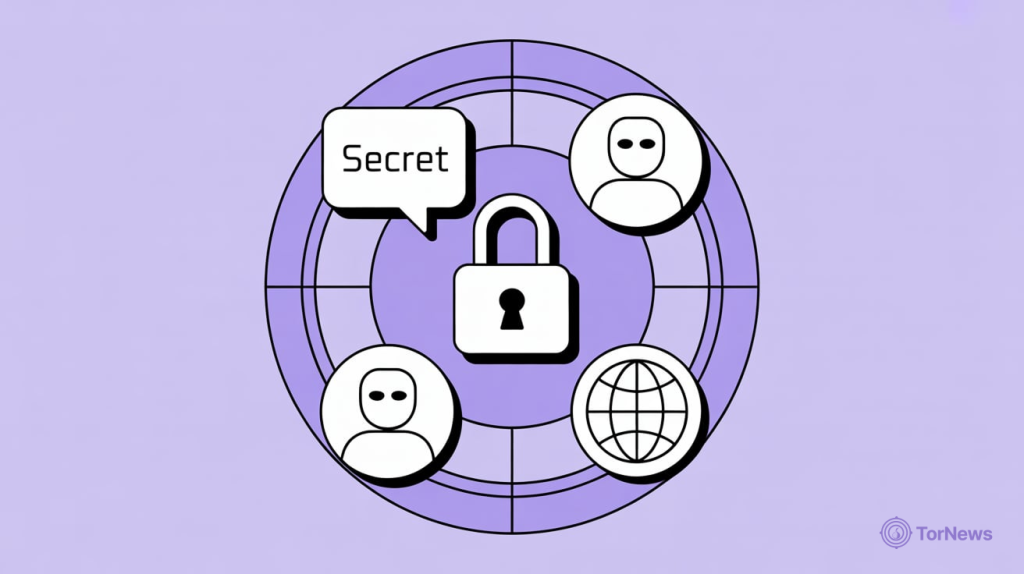
Understanding these underground forums requires understanding the entirety of their platforms to identify common characteristics that create functional criminal ecosystems.
These communities exhibit some commonality, which makes them efficient for criminals and of tremendous value to security professionals to understand.
Surprisingly Accessible Despite Barriers
You might be surprised to learn that while the dark web forums require certain software and often a rigorous vetting process, they are still shockingly easy to access for those who actually try to navigate them.
It’s like being outside a club with a bouncer. Admittedly intimidating, but once you know the right way to gain access, it won’t be impossible. In the case of forums with the most rigorous membership requirements, eventually, they will take in new members.
The criminal economy requires new blood to survive, and so no illegal forum can truly afford to be impossible to access. A little tenacity, some basic technical skills, and a few introductions can unlock most doors.
Structured like Legitimate Communities
These are not chaotic free-for-alls. Dark websites have clear hierarchies, rules, and organizational schemes that are very similar to functioning, legitimate online communities.
This makes them operationally viable and appropriate for users, while also creating structures that introduce patterns between identifiers for security researchers to discern and extrapolate from. One can perceive separate categories for different varieties of criminality; one can perceive two separate reputation systems for vendors
There are procedures for dispute resolution; there are community guideline features—everything you would anticipate a legitimate forum to have, except for organized crime instead of legitimate crime. Reason it this way: legitimate=permissible; illegitimate=non-permissible.
Concentrated Activity in a Small World
Despite the dark web’s label for ease of access, it should be construed as a vast size; it doesn’t refer at all to the amount of concurrent active criminal enterprise.
For example, there are many forums with thousands of registered users, but they only have hundreds engaging in active enterprise.
Much of the activity is occurring on a limited number of platforms, with what is called ‘direct competition’ amongst them because of the criminal nature of the enterprise.
This concentration of activity is good news for security professionals, as it means they do not have to monitor hundreds of active platforms.
If you target the top tier, you will capture the majority of criminal activity ebbs and flows, which is akin to studying organized crime but only investigating the Don or family running organized businesses instead of virtually every petty criminal.
Human Vulnerabilities in Digital Fortresses
Every forum, no matter how security-conscious, faces adverse operations and human factors.
Human mistakes, personal issues, or operational security failures can regularly lead to the compromise and closure of forums.
The human factors present opportunities for law enforcement and security researchers.
No digital castle is stronger than its weakest human link, and criminals, like everyone else, are vulnerable to ego, greed, and interpersonal squabbles.
Why Cybercriminals Flock Dark Web Forums
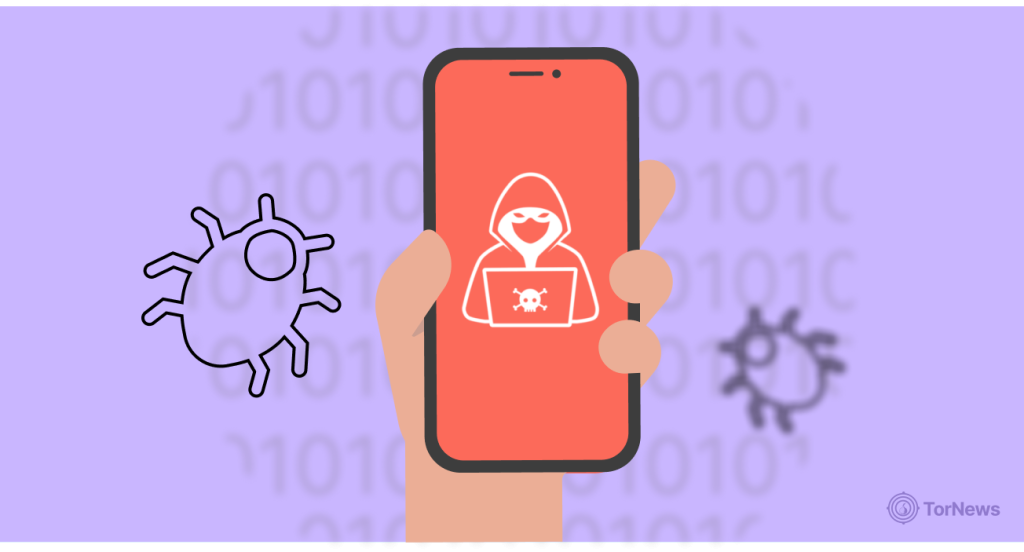
Why are cybercriminals drawn to these spaces, like moths to a flame?
The answer is surprisingly simple: it’s that cocktail of anonymity, security, and community that fosters illegal forum activity on a global scale.
Stealth Digital Anonymity
Browsing the traditional internet is like trudging through fresh snow–you leave footprints everywhere. Every website you visit, every search you perform, every link you click creates a digital trail for you.
However, darknet forums act more like a crowded masquerade ball with everyone wearing the same mask. The encrypted layers of these platforms would cause the most sophisticated surveillance operations to sweat.
Users communicate with pseudonyms, share files without disclosing location, and conduct business without linking actions back to real-world identities. It’s the pinnacle of digital anonymity.
The Underground Marketplace Economy
Dark web forums copy key players like eBay or Amazon, with user reviews, seller ratings, and customer service. But surely, you’re not getting vintage collectibles like ceramic salt and pepper shakers–you get stolen credit cards, compromised databases, and malware kits.
The illegal forum ecosystem has developed into a professionalised criminal economy that is worth billions of dollars. Besides becoming more sophisticated, they can appear far more professional in their operations.
They even offer special services like “Ransomware-as-a-Service,” where hackers are now able to rent their tools and expertise to less savvy, less technical criminals. Even more, it is like a cybercriminal franchise!
Trust Systems in a Trustless World
Here’s a little surprise: these criminal communities have actually developed some pretty sophisticated trust systems. You see trust systems in the form of reputation systems, escrow services, and feedback loops.
It’s a, sometimes, perverse, but still honorable, form of honor among thieves! And, when criminals can’t meet face to face, they end up creating fairly useful digital trust systems that make it possible for large-scale illegal commerce to happen. Users build reputations across months and years, nurturing their criminal brand.
As a vendor gains thousands of positive reviews by delivering stolen data, they become trusted by that member of the underground economy. And product satisfaction is just as central to the operation of that economy as it is to legitimate e-commerce.
What Happens on Dark Web Forums?

If you take a step into these hidden internet forums, you’ll see that they are not merely forums that consist of commerce and trade.
They are filled with leverage and activity around the total ecosystem!
These sites are very complex social ecosystems where cybercriminals engage, build social ties, compete for status, and engage in surprisingly human social behavior.
The Daily Drama of Digital Criminals
Believe it or not, these forums are full of drama. Users launch heated debates about market security, undertake personal vendettas against competitors, and engage in reputation wars that play out over several months. It is like high school with days spent discussing stolen credit card numbers instead of gossip and homework.
Forum administrators spend considerable time settling disputes between users, posturing to punish users who do not abide by community norms, and mediating conflicts between members. Failed transactions lead to messy public disputes, accusations of exit scams create community-wide panic, and rival forums engage in ill-formed smear campaigns against each other. The social dynamics are remarkably familiar, just with different stakes.
The Criminal Education Pipeline
One of the most troubling aspects of these illegal forum communities is their function as criminal universities. Experienced hackers mentor newer hackers, either anonymously or face-to-face, where they share techniques, tools, and operational knowledge.
Some of the tutorials on these forums are extremely detailed and cover all methods of criminal activity, from beginner phishing methods to advanced network intrusion. This criminal education has led to a dangerous and open pipeline from developers and experts in criminality through novices who want to position themselves as experts in the same fields.
What took years of effort to learn for self-taught system administrators can now be learned by most people in weeks when these are done collaboratively by the criminal community.
Status, Bragging Rights, and Digital Reputation
Many users are motivated by something that is surprisingly human: status or bragging rights. Users will provide lengthy narratives about a successful attack, will share images/screenshots of a compromised system, and will compete to show they have superior technical skills.
It’s just criminal social media, where status is derived from the performance of successful illicit activities. This activity also gives security professionals and law enforcement insights to use. Criminals are often posting detailed accounts of their attacks, sometimes in ways that are directly beneficial to an investigation, all because they want to show their peers in these underground communities that they are the best.
The Multi-Platform Challenge
Here’s what makes tracking this kind of activity particularly difficult: criminal content does not appear on one platform.
It’s always everywhere!
The same stolen database might be openly advertised across five different dark web credit card forums within the same hours. So, it’s practically impossible to trace the original source or gauge the extent of the breach. Security teams are tasked with watching across multiple platforms and then are tasked with fitting pieces of information together across multiple forums to build accurate threat assessments. It’s like trying to fit together a jigsaw puzzle with its pieces scattered across different tables in different rooms.
Best Practices for Dark Web Forum Monitoring
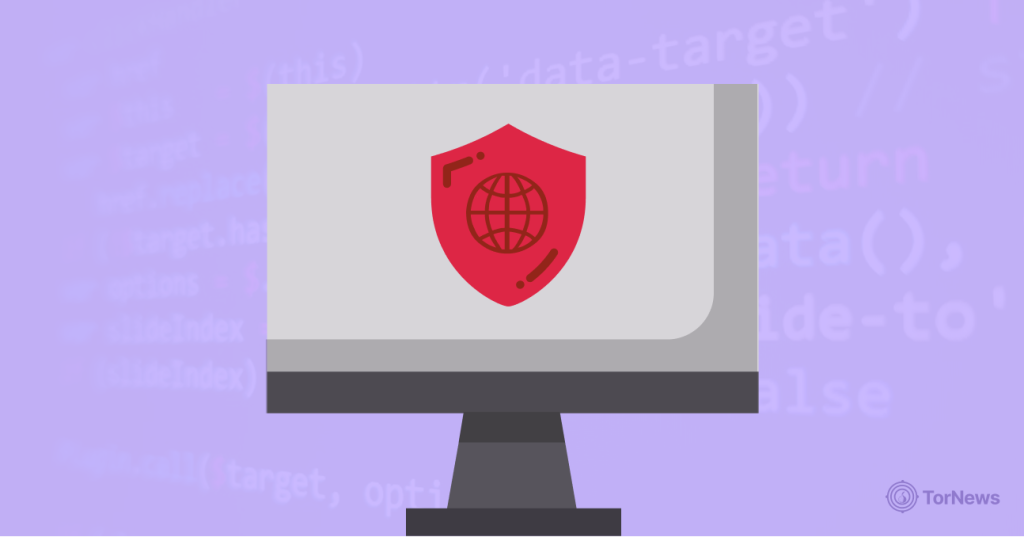
Monitoring popular dark web forums in 2026 is not just about effective tools; it is about having an effective strategy, approach, and mindset.
Here are the best practices that distinguish successful monitoring programs from security theater.
1. Establish Crystal-Clear Objectives
Before organizations immerse themselves in the digital underbelly, they need to commit to defining what they want to accomplish.
Are they monitoring for mentions of their company? Tracking threats of a specific class? Understanding threats in general? Each of these will need a different approach.
Your objectives need to be specific, measurable, and relevant to your security objectives.
Vague objectives like “monitor the dark web for threats” do nothing but create information overload and miss an important piece of information.
The more precise your objective, like “watch for the sale of our company’s customer data,” will allow you to create a focused monitoring program that can lead to action.
2. Deploy Appropriate Tools and Train Your People
Monitoring requires more than just software; it also requires the right mix of automated tools and human capacity.
Automated crawlers can capture thousands of forum posts; still, then a human analyst can consider the context, separate false positives, and determine the credibility of the threat.
Trained staff must be well-versed in identifying threats and understanding criminal vernacular, and in interacting with these perilous digital spaces safely.
Simply providing a user with a dark web search engine will not lead to good results; rather, this requires expertise and continual training.
3. Create Rapid Response Procedures
Threats posted to illegal forums are often time-sensitive.
Organizations should have pre-established escalation protocols that identify who will be notified, how to confirm the threat, and the appropriate responses for various levels of threats.
You also want your communication channels to be clear, which helps ensure that any critical threat intelligence will reach key decision makers quickly.
If you find a database stolen on Monday, don’t let it sit in an inbox until Wednesday; treat such threats as time-sensitive and respond immediately and systematically.
4. Maintain Legal and Ethical Compliance
Every part of your monitoring program must be conducted legally and ethically. All data protection and privacy laws, security best practices, etc., should guide every aspect of your monitoring program. Regularly reviewing policies is important to ensure the legal and ethical compliance of your monitoring as regulations change. The last thing you want to see is the result of your defensive monitoring program creating a legal liability for you and your organization.
5. The Intelligence Integration Challenge
Raw intelligence from the dark internet forums is only valuable when meaningfully integrated into your broader security program. Threat intelligence should contribute to security policies, affect technology decisions, and influence incident response plans.
This takes a significant process for developing and using intelligence to analyze, correlate, and act upon the information collected from these underground communities. Intelligence that sits in a silo, or is unused, is actually worthless: it needs to inform defensive activities and strategic decisions on security.
Are These Forums Still Worth Monitoring?
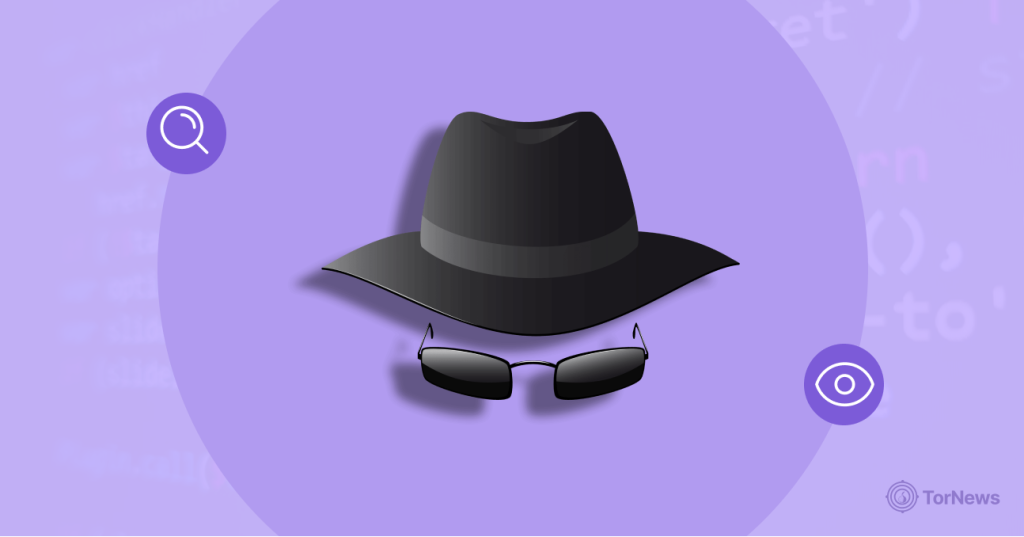
With criminals predominantly interacting in encrypted channels such as Telegram and Signal, the value proposition of monitoring the traditional forum-style appears to be less valuable. Some security professionals are now questioning its effectiveness as a monitoring method.
The answer is yes, and it may surprise you as to why. Below, we uncover why it makes sense to monitor private forums such as dark web ones instead of traditional forums today.
The Networking Hub Effect
While transaction-related aspects might occur in private messenger channels, these popular darknet resources (the forums) remain the main networking hubs to connect with other criminals: to find a partner, build reputations, and access resources.
It’s just like monitoring the lobby of a criminal convention: you may miss the transactions happening as people meet privately. But you’ll see the criminals and monitor their exchanges–and possibly develop useful leads from their public conversations.
These sites are often the first point of contact for individuals who are new to the cybercrime communities. For individuals starting a criminal career, the forums are one of the first places they will go, so they are a good place to better understand the criminal pipeline and also anticipate new threats.
Early Warning System
These criminal forums provide early warning information that selected defenders can use to initiate precautions, monitoring, or other precautions to prepare for, or outright fend off, potential attacks.
For example, forum posts about new attack methods, calls for operatives to join specific operations, and members boasting about recent successes often surface long before organizations feel the impact. The information and discussions that criminals have are valuable intelligence that can influence how individuals, teams, and organizations can prepare their defenses.
When criminals begin to talk about how they might evade a publicized new security mitigation strategy or layer. Organizations potentially affected by such strategies must recognize and respond to them immediately.
The Multi-Platform Reality
In reality, most serious criminal activity extends beyond a single forum, group, or representative acting for any one individual. Often, criminal threads are meandering participation across various discussions and media.
Simply stated, simply monitoring private/discrete criminal channels eliminates the value of forum activity to tell a much broader story about a criminal way of life, and where these criminal actors sit in that ecosystem.
This is similar to trying to get relevant background about a movie by only watching the deleted scenes instead of watching the film. You will take something away from the deleted scenes, but miss the main storyline.
Where to Find Legit Vulnerability Databases Outside the Dark Web?
Our research shows that most useful, reproducible vulnerability information lives on the clearnet: curated exploit archives (for example, Exploit-DB), canonical CVE/NVD listings, and curated catalogs of in-the-wild exploited flaws (such as CISA’s KEV). These sources publish proof-of-concept, advisories, and searchable CVE cross-references you can safely test in a lab.
For hands-on walkthroughs and community discussion, security subreddits on Reddit (for example, r/ExploitDev and r/Hacking_Tutorials) and resources like the Google Hacking Database (GHDB) supplement databases with practical context and dorking techniques. In short: start with public exploit and CVE databases for reliable test cases, then use forums and subreddits for practical, step-by-step guidance.
The Future of Dark Web Forums
Law enforcement pressure, technological progress, and shifting criminal needs will shape dark web forums today, just as these forces have always driven their evolution. We can identify patterns in these forces to understand how bad actors will change behavior, and how the underground ecosystem will develop.
Decentralization and Resilience
Forums are clearly moving toward more decentralized architectures, which eliminate single points of failure.
Instead of forums hosted on a central server owned by a host or provider that someone could seize, these new platforms are using peer-to-peer network systems, which are far more robust and harder for law enforcement to completely dismantle.
There are downsides to this decentralization, as more robust native solutions are less resilient against peer take-downs, but are often slower, more complicated to use, and can be susceptible to a wider variety of technical difficulties.
The criminal underground will learn the same lessons as legitimate technology companies on the shortcomings of a distributed system.
Increased Automation and AI Integration
Within the operational activities of forums, artificial intelligence is becoming more prevalent and integrated for both defensive and offensive functionalities.
In terms of defensive capabilities, AI-powered moderation systems assist forum operators in maintaining large and active communities. In terms of offensive capabilities, AI-generated content facilitates more sophisticated scams and fraudulent intelligence.
Any security professional monitoring the activity on criminal online forums will now need to retroactively adjust the techniques and methodologies by which they conduct analysis. AI algorithms generate content to help analysts identify genuine human criminal behavior and ensure the material they review reflects real activity.
The Encryption Arms Race
As law enforcement develops more advanced ways of tracking and infiltrating criminal forums, criminals respond with stronger encryption technologies and better operational security measures.
This creates an arms race between the privacy criminals enjoy and the surveillance law enforcement employs. Organizations monitoring these forums must invest in continuous improvements to their technical capabilities to keep pace with criminals’ security measures.
FAQs
Going to the dark web by using a tool like Tor is perfectly legal in most countries. Remember that the technology has a legitimate purpose because it was developed by the U.S. Navy! Many people who access the dark web do so for legal reasons, such as privacy, sourcing information in countries practicing censorship, and researchers extracting information. However, what becomes illegal is what you do once you access the dark web – for instance, obtaining illegal goods, accessing stolen data, and committing other criminal actions. The range of legality varies based on jurisdiction, so know your laws.
Tor (The Onion Router) is the most reputable and credible browser to access .onion sites. It anonymizes users by routing traffic through multiple layers of encryption, making tracing user activities nearly impossible. For optimal security, Tor users should always keep Tor up to date, disable JavaScript, refrain from downloading files, and never share personal information. While there are other privacy-focused browsers, Tor is still the best browser for anonymity on the web because it has exceptional encryption and a network of over 7,000 volunteer servers.
Yes, law enforcement periodically shuts down illegal forums and marketplaces in coordinated efforts as part of law enforcement operations. However, because the dark web is decentralized, new forums often spring up to take the place of those that were closed. This leads to a form of “whack-a-mole” approach to shutting down these sites; taking down one site can lead to multiple new sites and forums. The very resiliency of these forums comes from their distributed system, as well as how easy it is to create and host sites across multiple jurisdictions.
Cybercriminals can maintain multiple levels of anonymity while operating on the Internet. They can use virtual private networks (VPNs) to hide their computer’s IP address, Tor browsers to add another level of anonymity, cryptocurrency to hide their transactions, and remain pseudonymous in an attempt to never reveal their true identity. In addition to these methods, cybercriminals can also use encrypted communications, operate across different states and countries to complicate law enforcement’s investigative efforts, and utilize stolen or fake credentials. However, the layers of protection against identification as a criminal can fail. There are many documented incidents of law enforcement catching criminals due to operational security mistakes or advanced investigative techniques.
Cracked.to grew into one of the largest criminal communities within the online world. Since it opened in 2013 and gained over 3 million registered members, making over 17 million posts. To give this some perspective, this is larger than many populations of countries, effectively all in one digital criminal trade-show/convention! What made Cracked.to very interesting was its mixed sensitivity of content. Its primary focus was on illegal activity; however, it contained many discussions on programming and cybersecurity. That created a grey area as some content can have both criminal and quasi-legitimate uses. Despite this range of content, Cracked.to’s sheer scale made it a real impact player within the criminal ecosystem. When millions of people are discussing criminal techniques, sharing compromised/illicit (full or partial) data, coordinating future cybercrime, etc., they are having an impact on the entire criminal ecosystem and internet landscape. The Justice Department seized its infrastructure in a 2025 international operation in which it also disrupted the Nulled forum.

